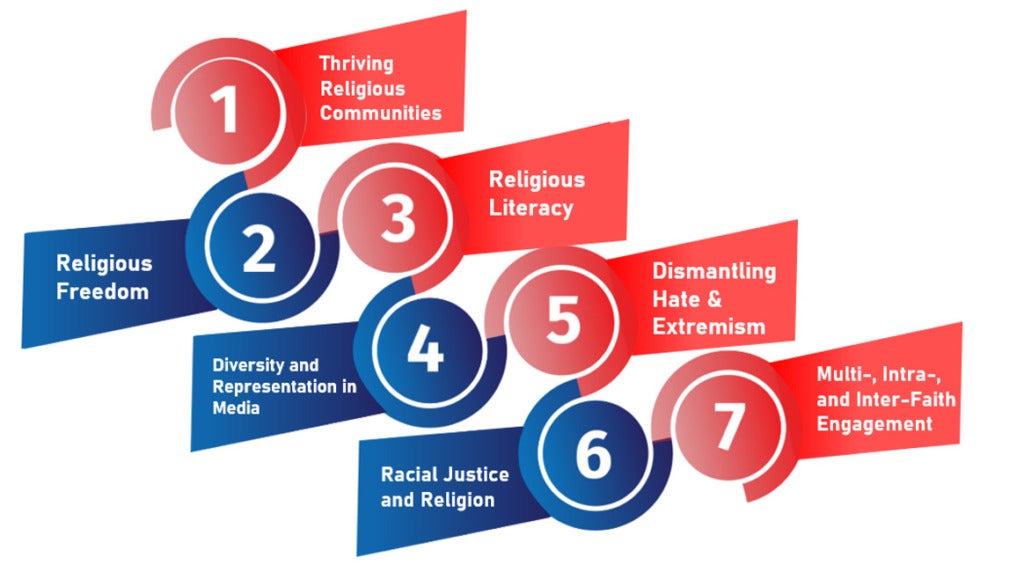The Components of Religious Pluralism
The mission of the Religion & Society Program is to strengthen the understanding of religion’s role in advancing equity and the common good by shifting ideas, policies, and practices. Launched in 2012, the Program envisions a society where religious and non-religious people thrive, respecting and engaging together across beliefs. We call this vision Religious Pluralism.
The Program focuses its work on seven components paramount to religious pluralism. Each is important and valuable on its own, but when brought together, they create the infrastructure for a society with thriving religious pluralism.

In furthering the understanding of these seven different components, we have convened the Powering Pluralism Network, which mobilizes leadership and connects allied communities. The invitation-only Network is made up of faith and civic leaders, academics, and other key players comprising seven cohorts, each focused on one of the seven components within the broad field of religious pluralism. Each cohort meets over 3-6 months to share knowledge, make connections, and create a resource for a public audience.







As the Powering Pluralism Network comes to a close in 2023, the Religion & Society Program is expanding our focus to additional topics within the broad area of pluralism to include News & Polarization and the intersection of religion with Diversity, Equity, and Inclusion work. Our new Aspen Religion Fellows program, which will kickoff in the Fall of 2023, seeks to explore some of these expanded topics in supporting original research.